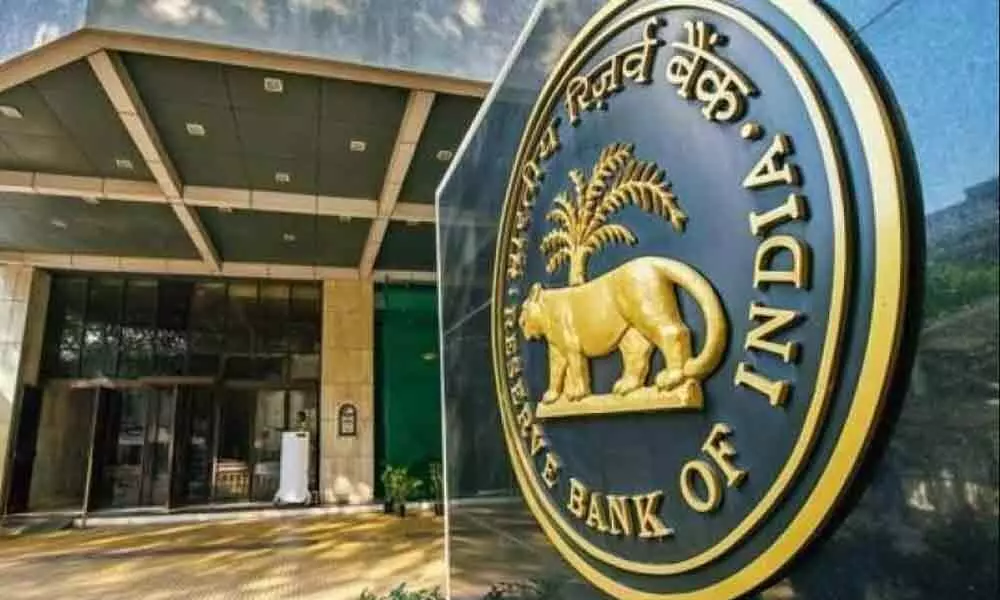Live
- ‘Bachhala Malli’ trailer heightens anticipation
- Karnataka quota row: Backward Class forum chief warns Lingayat seer over 'tinkering with reservations'
- Tight security arrangements at Group-II examination centers District SP
- Alia Bhatt captures attention in white
- Varun Dhawan talks about ‘Baby John’
- ‘Moonwalk’ trailer promises a quirky heist, love, and loyalty
- Combat leaf spot disease
- Ahsaas Channaopens up about her complex character in ‘Mismatched 3’
- Radhika Apte welcomes first child, shares heartfelt post
- Jacqueline dazzles at Da-Bangg Reloaded concert
Just In

Reserve Bank of India (RBI) on Friday issued guidelines for appointment of Chief Compliance Officer (CCO) in banks to ensure uniform approach with regard to compliance and risk management culture across the banking industry.
Reserve Bank of India (RBI) on Friday issued guidelines for appointment of Chief Compliance Officer (CCO) in banks to ensure uniform approach with regard to compliance and risk management culture across the banking industry.
Reserve Bank in the circular said, "As part of a robust compliance system, banks are required, inter-alia, to have an effective compliance culture, independent corporate compliance function and a strong compliance risk management programme at bank and group level. Such an independent compliance function is required to be headed by a designated Chief Compliance Officer (CCO) selected through a suitable process with an appropriate 'fit and proper' evaluation/selection criteria to manage compliance risk effectively."
It further added, "However, it is observed that the banks follow diverse practices in this regard. The following guidelines are meant to bring uniformity in approach followed by banks, as also to align the supervisory expectations on CCOs with best practices."
Accordingly, RBI has said that the CCO must be appointed for a minimum fixed period of three years. The person should be a senior executive of the bank, preferably in the rank of a general manager or an equivalent position or he could also be recruited from outside. He must not be more than 55 years in age.
The COO can be transferred or removed before completion of the tenure only in exceptional circumstances with the explicit prior approval of the Board after following a well-defined and transparent internal administrative procedure.
The CCO shall have direct reporting lines to the MD & CEO and/or Board/Board Committee (ACB) of the bank. In case the CCO reports to the MD & CEO, the Audit Committee of the Board shall meet the CCO quarterly on a one-to-one basis, without the presence of the senior management including MD & CEO.
The CCO shall not have any reporting relationship with the business verticals of the bank and shall not be given any business targets. Further, the performance appraisal of the CCO shall be reviewed by the Board/ACB.
Further, there shall not be any responsibility which brings elements of conflict of interest, especially the role relating to business. He must not be a member of any committee which brings his/her role in the conflict with responsibility as member of the committee, including any committee dealing with purchases/sanctions.
As per the circular, no vigilance case or adverse observation from the RBI should be pending against the candidate identified for appointment as the CCO. Selection of the candidate for the post of the CCO should be done based on a well-defined selection process and recommendations made by the senior executive-level selection committee constituted by the board for the purpose.

© 2024 Hyderabad Media House Limited/The Hans India. All rights reserved. Powered by hocalwire.com







